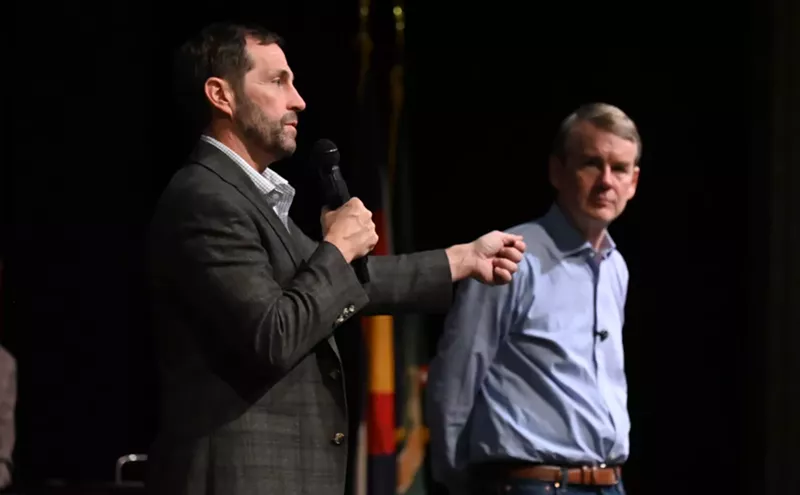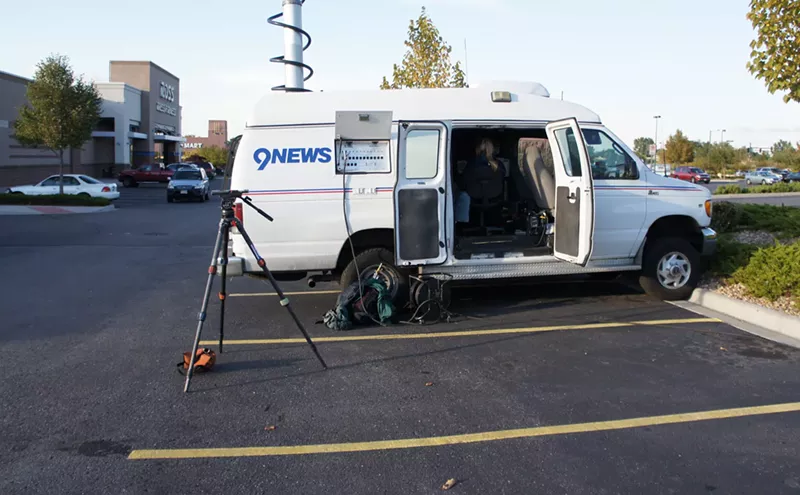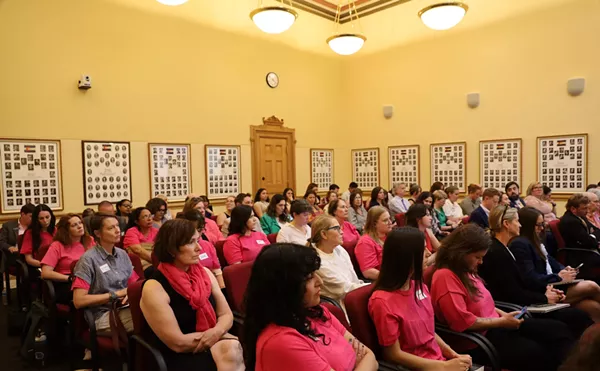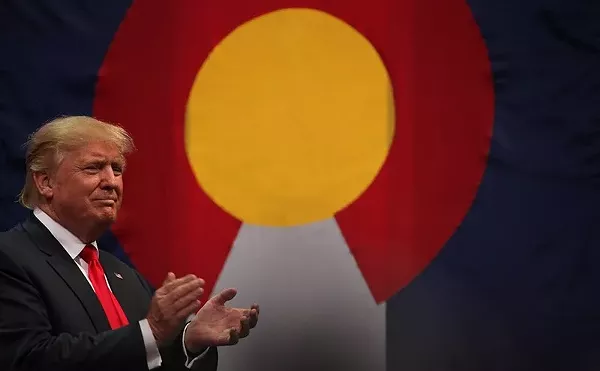Englewood City Council member Laurett Barrentine had approached Chambers for help in 2005, after she started receiving demands from collection attorney Steiner to make good on $320 in bounced checks. Chambers and Barrentine had become acquainted at various Republican Party functions but were not close friends.
Barrentine didn't write the checks. She'd had her purse stolen in 1999, and the phony checks had surfaced at a Wal-Mart five years later. It was hardly a federal case -- Steiner says he would have promptly dismissed the entire matter if Barrentine had only provided him with a copy of her signature, but she repeatedly refused. Chambers, who represents herself as a relentless advocate for victims, decided to get involved, seeing Barrentine's plight as a classic case of an identity-theft victim being further victimized. After studying the court file, she concluded that Steiner had misstated the law and didn't have sufficient evidence to sue Barrentine.
On January 23, 2006, shortly before Steiner's lawsuit against Barrentine was to go to trial, Chambers left a voice-mail message for Steiner, identifying herself as the Arapahoe County DA and informing him that "we are getting a lot of complaints from victims of identity theft that you are pressuring them, shall I say, to pay on checks that they did not write...and I am looking at investigating this with the grand jury, and I would like to hear your input first."
In fact, Chambers had received no complaints about Steiner from anyone except Barrentine. When she finally spoke to the collection lawyer a few days later, she explained that she'd meant complaints about the industry in general and that he wasn't a specific target of a grand jury investigation -- though she wouldn't rule him out, either. Steiner was so alarmed by Chambers's interest that he promptly dropped the case against Barrentine and even paid her court costs. And then, after some reflection and uneasiness about what had happened, he decided to file a grievance against Chambers.
Testifying at her disciplinary hearing, Chambers insisted she did nothing wrong. She was at a preliminary stage of her inquiry into collection-agency practices when she contacted Steiner. "I'm talking off the top of my head," she said. "I want to be straight with the guy. I want to hear his input first."
The panel presiding over the hearing gave Chambers the benefit of the doubt on several points. Its members decided she could have meant the industry in general, not Steiner, when she said she'd had complaints about "you," even though she couldn't cite any other specific entities she was investigating for pressuring identity-theft victims. They also decided that mentioning the grand jury to Steiner didn't constitute a threat.
But they were bothered by several other aspects of Chambers's story. She said she wanted to stay out of the civil case, but the timing of her call to Steiner -- just days before the trial -- suggested otherwise. She'd asked her husband to represent Barrentine, and Steiner had nervously remarked on the relationship when Nathan Chambers called him on Barrentine's behalf. Also, although Chambers insisted she wasn't targeting Steiner, an e-mail she sent to her investigator seemed to contradict that: "I want to look at potentially investigating the practices of Wal-Mart and this attorney as I think he is being coercive."
After Steiner dropped the case, Barrentine sent an e-mail to Chambers, thanking her for her intervention: "It's all about you!!! Thank you!"
The panel concluded that Chambers had "dual motives" in calling Steiner: to help Barrentine and to launch her investigation of collection agencies. Chambers "acted precipitously and negligently in determining whether it was proper to confront Mr. Steiner in the manner she did," the panel ruled. "She effectively placed her finger on the scales of justice on behalf of one party to a civil case."
If Chambers had simply waited until Barrentine's case was resolved before contacting Steiner, she might have avoided reprimand. But Chambers says she was so confident that Steiner didn't have a case, she didn't see any reason to delay her own investigation. If the cause is just, why shouldn't district attorneys bring their power to bear in civil matters?
"That's a conversation I had with my husband," she says now. "He said, 'You know, this doesn't look good.' I said, 'I'm not concerned about the appearance, I'm concerned about this actual person they're pressuring to pay checks she doesn't owe.'
"I think that's why I ended up with the sanction. It looks funny -- I get that. But the fact is, I'm going to help victims."
Chambers argues that her intervention wasn't the reason the case against Barrentine got dismissed -- that Steiner was obliged to withdraw such a flimsy case anyway. Steiner says he was quite willing to drop it after he learned that Barrentine was a victim of identity theft; still, there's no doubt in his mind that the message Chambers left him provided more than a nudge.
"I considered it a threat," he concludes. "I still do."












